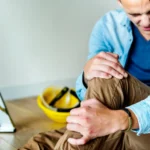When most people think of public liability claims, they tend to envision classic slip and fall accidents in supermarkets or trip hazards in shopping centres. While these are indeed common, public liability encompasses a wide array of unexpected and surprising incidents. Understanding what might constitute a claim is essential for those seeking compensation for injuries sustained in public or private spaces due to someone else’s negligence.
In this article, we’ll explore lesser-known circumstances that can lead to public liability claims, helping Australians better recognise when legal recourse may be appropriate.
Injuries from Falling Objects in Public Spaces
Falling objects might seem like a hazard limited to construction sites, but they occur more frequently in everyday environments than one might expect. Items falling from shelves in retail stores, unsecured decorations at public events, or even tree branches in public parks can all cause serious harm.
If an object strikes a person due to poor maintenance, careless stacking, or inadequate warning signage, the injured party may have grounds for a public liability claim. Such incidents may also involve occupiers’ liability, depending on the circumstances. The responsible party could range from a store owner to a local council, depending on where the incident occurred.
Accidents Involving Animals
While animal attacks might typically fall under other legal categories, they can also form the basis of public liability claims. For instance, if a dog not properly restrained in a public park bites a passer-by, or if a child is knocked over by a horse at a petting zoo without adequate supervision, the owner or operator may be liable.
It’s also worth noting that liability isn’t restricted to attacks. Injuries caused by excrement left in public walkways or allergic reactions due to improper animal hygiene may also be actionable, especially if reasonable steps weren’t taken to prevent harm.
Playground and Amusement Park Injuries
Public playgrounds and amusement parks are expected to maintain high safety standards, particularly as they cater to children. However, malfunctioning equipment, broken surfaces, or the lack of supervision can lead to serious accidents.
In these circumstances, a breach of duty by the property owner or operator may be evident. If it can be shown that the injury was foreseeable and preventable, legal action may be possible. For families navigating such distressing situations, it may be helpful to seek advice from specialists in public liability claims who can assess the situation and determine whether compensation may be pursued.
Injuries from Poorly Lit or Maintained Walkways
Tripping on cracked pavements or falling down poorly lit stairs doesn’t just happen in shopping centres. Incidents like these occur in car parks, office buildings, and public transport stations where proper lighting or surface upkeep is lacking.
For instance, slipping on algae-covered pathways or missing a step due to inadequate lighting can result in sprains, fractures or worse. If the responsible party—be it a council, building manager, or property owner—failed to maintain the area or warn visitors, they could be held liable.
Sports and Recreational Facilities Accidents
Participating in sport carries a level of inherent risk. However, that does not exempt facility operators from their duty of care. Poorly maintained grounds, faulty equipment, or lack of emergency support may tip an injury into the realm of public liability.
Consider a scenario where a gym-goer sustains a head injury from a broken treadmill, or a swimmer is hurt due to a missing pool grate. If proper safety protocols weren’t followed or the equipment was neglected, there may be a viable claim.
Understanding Liability in the Unexpected
Public liability claims extend far beyond the obvious. From falling signage to allergic reactions and sports injuries, the variety of potential claims is broader than many realise. What they all share is the requirement to prove that a duty of care was owed and breached, resulting in injury.
For anyone unsure whether their experience qualifies, consulting with professionals can clarify the options and likelihood of success. Being informed is the first step in seeking fair compensation and ensuring accountability.










 /home/u448362301/domains/theexpotab.com/public_html/wp-content/themes/foxiz/templates/popup.php on line 167
/home/u448362301/domains/theexpotab.com/public_html/wp-content/themes/foxiz/templates/popup.php on line 167